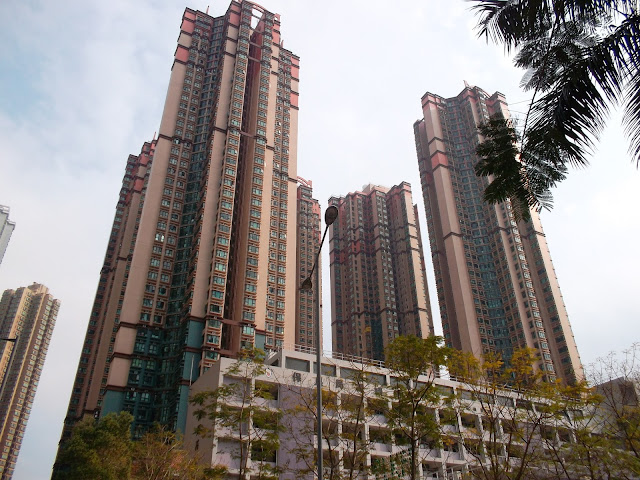Yesterday I finally arrived in Hong Kong and moved in my new temporary flat, where I will be spending the next two months.
Hong Kong is known for having one of the most expensive property markets in the world. As South China Morning Post reported, "prices per square foot now exceed HK$10,000 even in drab, unglamorous districts such as Taikoo Shing on Hong Kong Island, where thousands of 700 square-foot units sell for more than US$1 million apiece, more than a large cottage in Provence, France, a 2,700 square-foot bungalow in Hawaii, or a 1,300 square-foot flat on Manhattan’s Upper West Side."
I now have the privilege to experience myself the consequences of the shortage of land and high population density that characterize Hong Kong (and also of recent years' speculation). My new really tiny room (it's the smallest room I've ever lived in) costs 4,000 HKD (around 400 Euros).
Hong Kong's lack of space and huge population are the reasons why the city's skyline is totally different from that of Taipei and other world's major cities. Hong Kong's apartment building are huge, in order to accommodate as many people as possible. Here are some pictures of the area where I live:

|
| View from the window of my room |

|
| Another picture taken from my room |

|
| Square right in front of my building |

|
| Hang Hau MTR station |

|
| Apartments, apartments, apartments |

|
| After living in Taipei for so long I really appreciate garbage bins. In Taipei, there are almost none (apparently it's because of the unique recycling system in Taiwan, but it's still annoying) |

|
| Hang Hau MTR station - front side |

|
| Typical Hong Kong taxi |

|
| There's no space for flats, but there's always space for a huge department store |
The world’s leading TEFL course provider, i-to-i TEFL has trained more than 127,000 people in the last 18 years. i-to-i TEFL offers world renowned training – either face-to-face training in the classroom, distance learning online or a combination of the two! Learn more!
Living in Hong Kong can be more convenient if you can be able to prepare yourself better. You may check the web for guidelines when living in this country.
ReplyHi Danica, thanks for your comment: ) Well, I had already been to Hong Kong twice, so I was not a total stranger in the city when I arrived. But I guess one can never be fully prepared. Staying in a place for just a few days is totally different from living there for a longer period of time. But so far I am doing fine here: )
ReplyWow there is a lot to know! I would be totally lost if you didn't post this. It's almost intimidating! But so exciting. I can't wait to go!
ReplyVan Rental Hong Kong